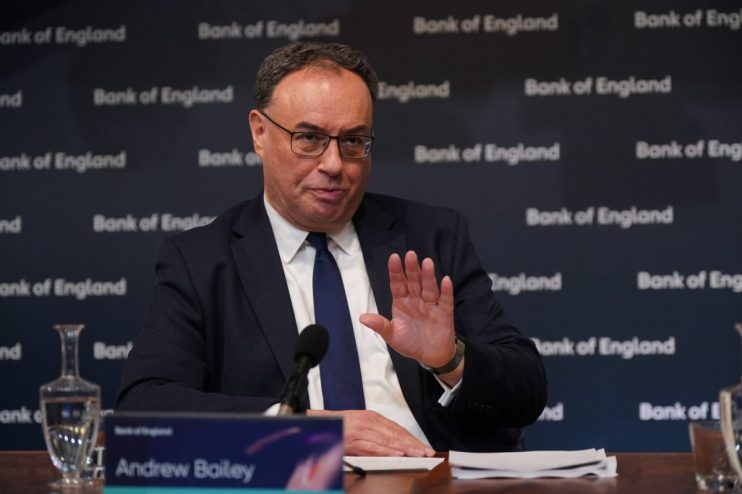Interest rates nearing peak as inflation set for ‘quite marked’ fall this year, Bailey says

The Bank of England is nearing the end of its monetary tightening cycle, the Bank’s governor suggested today, adding that there will be a “quite marked” fall in inflation by the end of the year.
“There was a period when it was clear rates needed to rise going forwards, and the question for us was how much and over what time frame. We’re not, I think, in that phase anymore,” Andrew Bailey said as he was questioned by MPs today.
“We’re much nearer the top of the cycle… on the basis of current evidence,” he added.
His comments prompted the pound to fall to a three month low, dropping 0.6 per cent to trade below $1.25, as markets bet that the Bank might not lift rates as far as previously thought. Markets are currently pricing in a further two 25 basis point rate hikes, which would see the bank rate reach a peak of 5.75 per cent.
Bailey stressed, however, that his comments should not be taken as an indication for which way he will vote in the upcoming Monetary Policy Committee (MPC) meeting in September.
The Bank is growing increasingly confident that rising rates are helping to tame inflation. Inflation came down to 6.8 per cent in July, having peaked at over 11 per cent last year.
While Bailey said August inflation might see a slight rise due to rising fuel prices, he said it would continue falling over the rest of the year.
“Many of the indicators are now moving as we would expect them to move and are signalling that the fall in inflation will continue and as I’ve said a number of times I think will be quite marked by the end of this year,” he said.
However, Bailey said the strength of wage bargaining has surprised the Bank and will look to see whether pay rise demands ease off going forward.
Swati Dhingra, another member of the MPC, said there were “very promising signs” that inflation is falling. She pointed out that producer price inflation has fallen significantly and that “almost every item” in the consumer price index has turned negative.
Although interest rates are likely nearing their peak, the Bank’s rate-setters have increasingly signalled that rates will have to be left higher for longer than markets expect.
Bailey said the decision of when to cut rates will be “an important judgement”.